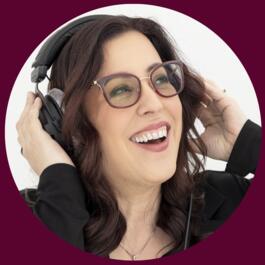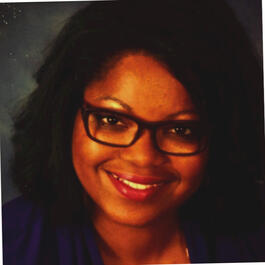
Unconscious Biases: An Interview With LaTonya J. Pegues - Part 1
“The ability to share information and to help other people have opportunities to provide their voice, if you will, to a read can make such a huge difference in what happens and how the audience receives it and how even the customer or the client receives what's being read.” -- LaTonya J. Pegues For years LaTonya J. Pegues has been known as a person who can provide simple explanations for complex concepts and ideas. With a background in the performing arts, not to mention having worked as a low-temperature physicist and satellite engineer, LaTonya is a skillful trainer who applies her knowledge and experience in facilitating and guiding clientele towards realizing, meeting, and exceeding their goals and objectives. We're going to speak particularly about how to overcome unconscious bias in audio: where it's showing up for people and how it can be overcome. As always, if you have any questions for my guest, you’re welcome to reach out through the links in the show notes. If you have questions for me, just visit www.audiobrandingpodcast.com where you’ll find all sorts of ways to get in touch. Plus, subscribing to the newsletter (on the www.audiobrandingpodcast.com webpage) will let you know when the new podcasts are available. What We’re Picking Up The episode begins as LaTonya recalls her first memories of sound: the voices of her parents and the joy their excitement brought her as a child. We talk about where our unconscious biases come from, and how pervasive a part of the world they can be, particularly when it comes to audio. "It's because of these social stereotypes that we get just from the air in some instances," she explains, "what's traveling through the air, what we are picking up, and what our brains keeping." When Bias Gets in the Way We take a look at the reasons we hold onto our biases, and how the thought process behind them isn't always a bad thing. It's when a bias is based on misinformation, LaTonya tells us, or a perspective that's too limited, or by our own relationships, that it can keep us from seeing the world as it truly is. "Sometimes we have these tendencies to just want to hear from certain folks," she says, "for whatever reason, and not hear from others, and that also can cause unconscious bias." Beyond the Comfort Zone The conversation continues with LaTonya's thoughts about how unconscious biases are reflected in the world around us, and how they limit our opportunities as well as the authenticity of the movies and pop culture we take for granted. We discuss the lost art of brainstorming, and how helpful going outside your comfort zone to seek out new perspectives and experiences can be. "My experience has been that every time that there's a brainstorming session, we're better off at the end than we were at the beginning because we've all come together and we've shared our ideas." Popping the Bias Bubble LaTonya tells us about what she calls "bias bubbles," the news and social media filters that surround us and often just reinforce our own opinions. She recommends seeking out other points of view, even just spending five minutes apiece on each news network instead of just our favorites, and occasionally shaking up our comfortable habits. "Listen to different music," she tells us, "go to different venues and try different foods. My goodness, go across the railroad tracks and try a different part of town." As she puts it, "when you're in a position to actually do something to make a change, do it!" Episode SummaryLaTonya’s childhood memory of...
From "Audio Branding"




Comments
Add comment Feedback